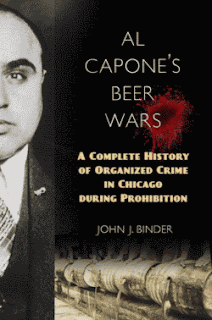On this date in 1927, two men were felled by shotgun and automatic pistol fire as they chatted outside a South Philadelphia restaurant. The shooting resulted in unprecedented cooperation with law enforcement by a Philadelphia gang leader and the arrest and (largely unsuccessful) prosecution of local Mafia leadership.
 |
| Philadelphia Inquirer, May 31, 1927. |
The location of the shooting was the Cafe Calabria, 824 South Eighth Street near Christian Street. Gunmen positioned in the area coordinated with others in a passing automobile for the carefully planned 6 p.m. attack.
Anthony "Musky" Zanghi, 27, an arrogant gang boss who regularly found himself in as much trouble with other underworld figures as he was with law enforcement officers, was the apparent target of the gunmen. But he avoided any injury, reportedly by ducking for cover at just the right moment.
Zanghi's little brother Joseph, 19, and underworld colleague Vincent "Scabby" Cocozza, 31, were not as fortunate. They were hit by flying lead as they stood near Musky on the sidewalk. A slug penetrated the center of Joseph Zanghi's forehead, killing him instantly. Scabby was shot multiple times. He died minutes after arrival at Pennsylvania Hospital.
One of the witnesses to the double-murder was a six-year-old Alfred "Freddy" Cocozza, nephew of the slain Vincent Cocozza. Years later, Freddy Cocozza embarked on a fabulously successful singing career using the name Mario Lanza.
 |
| Vincent Cocozza death certificate |
Early accounts of the shooting were vague. Some reports said Joseph Zanghi and Vincent Cocozza were shot while waiting for Musky to finish dinner at the Giardino di Torrena restaurant next door at 822 South Eighth Street.
Musky was so enraged by the killing of his brother that he provided detectives with a detailed story of the incident and formally accused a number of Philadelphia-area men of taking part in it. Police officials said it was the first time they recalled any crime figure of Zanghi's rank breaking the underworld's "code of silence."
According to his story, he and Cocozza had been in Atlantic City, New Jersey, earlier in the day. Upon their return to Philadelphia, Anthony Zanghi was warned to stay out of sight, as gunmen from out of town were looking for him. Zanghi did not follow the advice.
Minutes before six o'clock, Musky and Cocozza encountered local Mafiosi Salvatore Sabella and John "Big Nose" Avena along Eighth Street. Sabella and Avena greeted Zanghi with unusual warmth, patting him on the shoulders and inquiring about his health.
 |
| Anthony "Musky" Zanghi |
"I knew they were a couple of [John] Scopoletti's men, and it struck me funny that they were making so much fuss over me," Zanghi told detectives. (Zanghi believed that Scopoletti was the boss of the local Mafia at the time. That appears to have been an error.)
Cocozza walked on and bumped into Joseph Zanghi, who was on his way to meet his brother. The two men stopped to talk, while Anthony Zanghi worked to extract himself from the Sicilian gangsters.
Zanghi told investigators that he spotted a few Scopoletti men sneak around a corner. Certain that something was up, he stepped away from Sabella and Avena. At that moment, a blue sedan sped around the corner from Christian Street and Sabella and Avena and other men on the street drew pistols.
Musky dove for cover as the weapons from the sidewalk and the street opened fire. As Scabby and Joseph collapsed, the gunmen on the sidewalk jumped onto the sides of the automobile and were quickly carried away.
Hearing this story, police gathered up Scopoletti, Sabella, Avena, Joseph Ida, Dominick Festa, Luigi Quaranta and Dominick Pollina. They also arrested four men from New Brunswick, New Jersey, who showed up to meet with the Mafiosi as the arrests were being made. The New Jersey suspects were identified as Norman Marsella, Nicholas Messino, Joseph Bruno and John Marco.
Early on the morning of May 31, an emotional Zanghi identified all of the Philadelphia men in a police lineup, calling the suspects "dirty dogs" and "dirty rats." As he first saw the lineup, he called out, "There's the dirty rats that killed my brother. Let me get at them." According to reports, Zanghi decked Sabella with a single punch to his head.
After making the identifications, the gang leader wept: "I've done something I never thought any cop could ever make me do. I've squealed. I'll be killed now for sure, but I don't care. My brother is dead, and I loved my brother."
Zanghi provided police with information on underworld activities, including regional trafficking in liquor, narcotics and women. Police also learned that Zanghi's organization had been shaking down saloons in the region that did business with his bootlegging competitors, a possible motive for the Mafiosi to wish to eliminate Zanghi.
A short time later, there was reason to doubt Zanghi's stated determination to see his brother's killers brought to justice. Musky went missing. Luigi Quaranta was tried and convicted during his absence. Quaranta was later given a new trial because Zanghi - his original accuser - had been unavailable for cross examination.
Defense witnesses testified that Zanghi falsely identified the suspects. One witness testified that Zanghi privately admitted he did so in order to extort large payments from the Mafiosi. Zanghi's disappearance was said to be evidence that he had received a payment. He soon returned to Philadelphia, but he had little credibility left. None of the other murder suspects were convicted.
Anthony Zanghi remained a racketeer. Suspected of the 1928 murder of Anthony Denni, he left Pennsylvania and began operating in New York under the name of William Martino. Musky was shot to death in Manhattan's Little Italy, on Mulberry Street between Canal and Hester, on August 7, 1934. Police believed that Zanghi business partner Anthony Cugino, then in hiding, killed
Zanghi after an argument related to a currency counterfeiting operation. Zanghi's widow, Antoinette, was subsequently arrested, tried and convicted of working in the same counterfeiting racket. Police tracked down Cugino the following year. He hanged himself in a holding cell at New York City Police Headquarters on September 8, 1935, before he could be arraigned for his partner's murder.
Sources:
- Joseph Zanghi Certificate of Death, County of Philadelphia, file no. 47793, reg. no. 12335, filed June 1, 1927.
- Vincent Cocozza Certificate of Death, County of Philadelphia, file no. 46043, reg. no. 12345, filed June 1, 1927.
- New York City Death Index, certificate no. 18199, Aug. 7, 1934, Ancestry.com.
- Register of Interments, Mt. Moriah, Philadelphia PA, Ancestry.com.
- "2 slain in street by gunmen firing from racing auto," Philadelphia Inquirer, May 31, 1927, p. 1
- "Gangsters kill 2 men," Wilmington DE Evening Journal, May 31, 1927, p. 8.
- "Use pump guns in gang warfare," Wilkes-Barre PA Record, May 31, 1927, p. 1.
- "Two men slain on street corner," Pittsburgh Press, May 31, 1927, p. 1.
- "Breaks gang law in helping cops nab brother's slayers," Brooklyn Daily Eagle, May 31, 1927, p. 6.
- "Gang chief names seven as slayers' bares crime ring," Philadelphia Inquirer, June 1, 1927, p. 1.
- "Scopeletti trial nearly disrupted by 'buying' charge," Philadelphia Inquirer, July 1, 1927, p. 1.
- "New trial in killings," Philadelphia Inquirer, Dec. 30, 1927, p. 2.
- "Gangster killed in crowded street," Brooklyn Daily Eagle, Aug. 8, 1934, p. 11.
- "Zanghi widow held as bad bill passer," Philadelphia Inquirer, Dec. 19, 1934, p. 2.
- "Ex-inmate of Maryland pen, wholesale killer, hangs himself in cell," Baltimore Sun, Sept. 9, 1935, p. 20.






